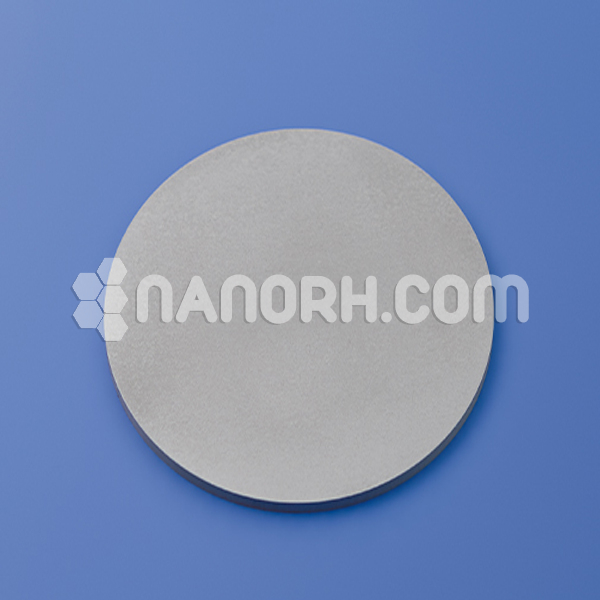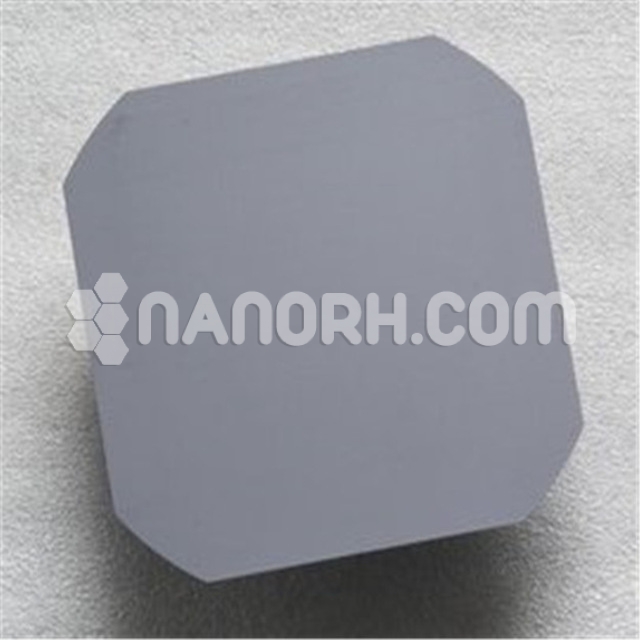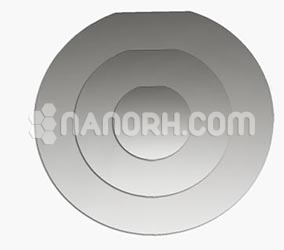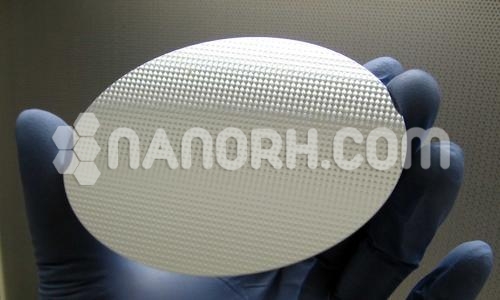| Neodymium Barium Copper Oxide Sputtering Targets | |
| Product No | NRE-43508 |
| CAS No. | 111419-84-2 |
| Formula | NdBa2Cu3O7 |
| Molecular Weight | 721.528 |
| Purity | >99.9% |
| Density | 6.73 g/cm3 (lit.) |
| Thickness | 3 mm ± 0.5mm (can be customized) |
| Diameter | 50 mm ± 1mm (can be customized) |
| Shape | Round |
| Resistivity | NA |
| Thermal Conductivity | NA |
Neodymium Barium Copper Oxide Sputtering Targets
Introduction
Neodymium Barium Copper Oxide (NdBa2Cu3O7), commonly referred to as NdBCO, is a high-temperature superconductor that belongs to the cuprate family. This compound is known for its superconducting properties above the boiling point of liquid nitrogen (77 K), making it a subject of intense research and application in various fields.
Properties of NdBa2Cu3O7
High-Temperature Superconductivity: NdBCO exhibits superconductivity at relatively high temperatures compared to conventional superconductors, enabling a wide range of practical applications.
Good Electrical Conductivity: The material demonstrates excellent electrical conductivity when in the superconducting state, allowing for efficient current flow.
Thermal Stability: NdBCO is thermally stable, making it suitable for applications that involve high temperatures.
Strong Flux Pinning: This property enhances the performance of superconducting applications by allowing the material to maintain its superconducting state in the presence of magnetic fields.
Applications
Superconducting Coatings: NdBCO sputtering targets are used to create thin films for superconducting electronics, such as wires, tapes, and devices that require high current-carrying capabilities.
Magnetic Levitation: The material is used in applications involving magnetic levitation, such as maglev trains, which exploit superconducting properties for frictionless movement.
Electronics and Power Devices: NdBCO films can be utilized in the development of more efficient electronic components, including transistors, sensors, and power devices.
Research and Development: These targets are commonly employed in laboratories for research into new superconducting materials and technologies.
Energy Storage: NdBCO may also be explored for use in superconducting magnetic energy storage systems (SMES), which provide rapid discharge of stored energy.




